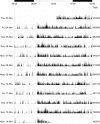Total daily physical activity and the risk of AD and cognitive decline in older adults
- PMID: 22517108
- PMCID: PMC3335448
- DOI: 10.1212/WNL.0b013e3182535d35
Total daily physical activity and the risk of AD and cognitive decline in older adults
Abstract
Objective: Studies examining the link between objective measures of total daily physical activity and incident Alzheimer disease (AD) are lacking. We tested the hypothesis that an objective measure of total daily physical activity predicts incident AD and cognitive decline.
Methods: Total daily exercise and nonexercise physical activity was measured continuously for up to 10 days with actigraphy (Actical®; Philips Healthcare, Bend, OR) from 716 older individuals without dementia participating in the Rush Memory and Aging Project, a prospective, observational cohort study. All participants underwent structured annual clinical examination including a battery of 19 cognitive tests.
Results: During an average follow-up of about 4 years, 71 subjects developed clinical AD. In a Cox proportional hazards model adjusting for age, sex, and education, total daily physical activity was associated with incident AD (hazard ratio = 0.477; 95% confidence interval 0.273-0.832). The association remained after adjusting for self-report physical, social, and cognitive activities, as well as current level of motor function, depressive symptoms, chronic health conditions, and APOE allele status. In a linear mixed-effect model, the level of total daily physical activity was associated with the rate of global cognitive decline (estimate 0.033, SE 0.012, p = 0.007).
Conclusions: A higher level of total daily physical activity is associated with a reduced risk of AD.
Figures


Comment in
-
Being physically active may protect the brain from Alzheimer disease.Neurology. 2012 Apr 24;78(17):1290-1. doi: 10.1212/WNL.0b013e3182535f0e. Epub 2012 Apr 18. Neurology. 2012. PMID: 22517099 No abstract available.
-
Preventing Alzheimer disease with exercise?Neurology. 2012 Apr 24;78(17):e110-2. doi: 10.1212/WNL.0b013e318255e0c9. Neurology. 2012. PMID: 22529211 No abstract available.
-
Total daily physical activity and the risk of AD and cognitive decline in older adults.Neurology. 2012 Sep 4;79(10):1071; author reply 1071. doi: 10.1212/WNL.0b013e31826bd5cf. Neurology. 2012. PMID: 22946116 No abstract available.
References
-
- Verghese J, Lipton RB, Katz MJ, et al. Leisure activities and the risk of dementia in the elderly. N Engl J Med 2003; 348: 2508– 2516 - PubMed
-
- Larson EB, Wang L, Bowen JD, et al. Exercise is associated with reduced risk for incident dementia among persons 65 years of age and older. Ann Intern Med 2006; 144: 73– 81 - PubMed
-
- Daviglus ML, Plassman BL, Pirzada A, et al. Risk factors and preventive interventions for Alzheimer disease: state of the science. Arch Neurol Epub 2011 - PubMed
-
- Plassman BL, Williams JW, Burke JR, Holsinger T, Benjamin S. Systematic review: factors associated with risk for and possible prevention of cognitive decline in later life. Ann Intern Med 2010; 153: 182– 193 - PubMed
Publication types
MeSH terms
Grants and funding
LinkOut - more resources
Full Text Sources
Medical
Miscellaneous
